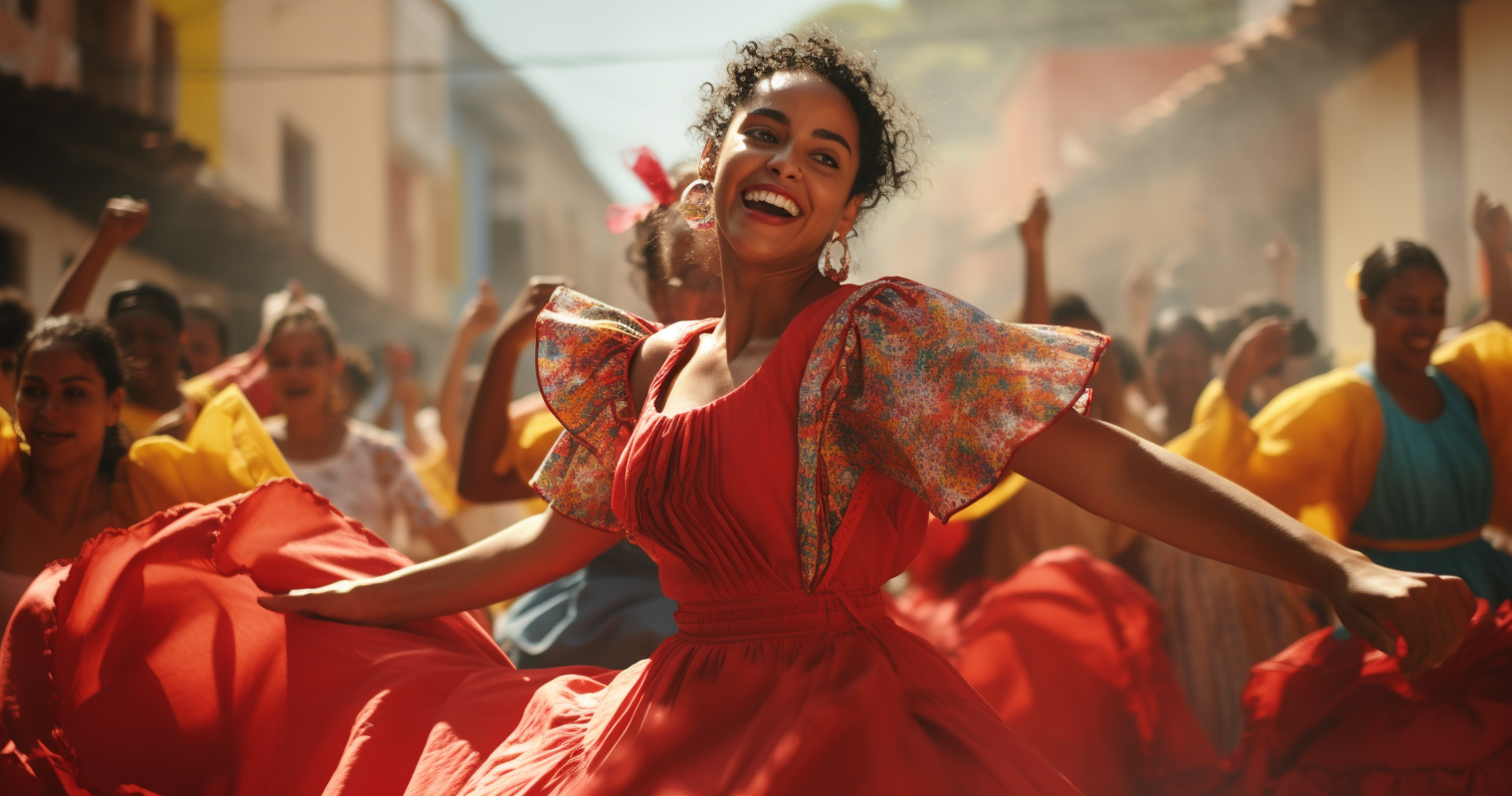The vibrant nation of Venezuela, nestled in the heart of South America, is rich in culture, history, and traditions. Among its many cultural offerings, dance stands out as a remarkable medium of expression. For expats, understanding and even participating in these dance forms can offer a unique lens to experience Venezuela authentically. From the energetic beats of salsa to the rhythmic moves of merengue, let’s explore the dance culture that thrives in this beautiful nation.
Historical Roots of Venezuelan Dance
Like many Latin American countries, Venezuela’s dance heritage is a melting pot of indigenous, African, and European influences. The country’s rich history of colonization, trade, and migration resulted in a vibrant tapestry of cultural exchanges that found profound expression in dance.
Spanish colonizers brought with them the dances of the Old World, introducing courtly dances and folkloric rhythms from the Iberian Peninsula. African slaves, on the other hand, brought their own rich traditions. The percussive beats, expressive movements, and deep spiritual connections found in African dances were amalgamated with local customs. Not to be overshadowed, the indigenous tribes of Venezuela, such as the Warao and Wayuu, contributed their ancient dances that often mirrored the natural world and its cycles, from hunting to rituals and ceremonies.
The fusion of these diverse roots has given birth to dances that are not only aesthetically captivating but also narratively rich. For example, the rhythms and instruments used in many Venezuelan dances can trace their origins to African drums, Spanish guitars, and indigenous flutes, showcasing the diverse influences at play.
It’s also worth noting that as these dance forms evolved, they started telling stories of resistance, love, hardship, celebration, and everyday life. They became a medium of communication, resistance, and identity during various historical periods, especially during the struggles for independence and nation-building. By immersing in these dance forms, expats can grasp a profound understanding of the social, political, and cultural fabric of Venezuela. For a more detailed exploration of Venezuela’s past, VenezuelaTuya offers an in-depth look at the country’s rich historical tapestry, which can provide valuable context to the dance traditions.
Popular Dance Forms
Dance has long been an integral part of Venezuela’s rich cultural heritage. Beyond the internationally recognized salsa and merengue, Venezuela boasts a plethora of traditional dance forms, each telling a unique story of the nation’s history, traditions, and heart.
Joropo: Often dubbed as the heartbeat of Venezuela’s plains, Joropo is a dance of both passion and precision. This national dance sees partners engage in swift, intricate footwork while maintaining a poised upper body. The harmony of the dance is perfectly complemented by the sounds of the harp, maracas, and the cuatro, immersing the dancers and audience alike in a captivating experience.
Gaita: More than just a dance, Gaita is a festive celebration stemming from the Zulia region. Predominantly performed during the festive Christmas season, Gaita encapsulates the soul of Venezuela by narrating tales of love, political commentaries, and snapshots of everyday life. The dance and music combination evokes deep emotions, making it a favorite among many Venezuelans.
Tambor: A beautiful testament to Venezuela’s African heritage, Tambor is a rhythmic dance form from the central coast, particularly the Barlovento region. The magnetic pulse of large drums drives the dance, which reaches its zenith during the San Juan Festival. Dancers are often adorned in colorful traditional outfits, adding to the visual spectacle of the dance.
Merengue and Salsa in Venezuela
Merengue, with its Dominican birthright, has found a second home in Venezuela. Characterized by its close-knit partner work, merengue is a dance of unity and rhythm. The hypnotic hip movements coupled with swift spins make it a dance that’s both exciting to watch and perform. Expats can easily immerse themselves in the vibrant Merengue scene through the numerous dance schools and clubs offering lessons throughout the country.
Salsa, with its Cuban origins, has been generously adopted and adapted by Venezuelans. The country, and especially its capital, Caracas, pulsates to the vibrant beats of salsa music. Local clubs often resonate with the sounds of live bands, presenting both seasoned dancers and beginners an opportunity to sway to this intoxicating rhythm. For expats eager to step into the world of salsa, SalsaCaracas serves as a gateway, providing information on events, classes, and all things salsa in the city.
Embracing Dance as an Expat
For expats, engaging with Venezuelan dance culture can be an enriching experience. Not only does it offer a window into the nation’s heart and soul, but it also provides numerous social and health benefits.
Social Connections: Dance classes and clubs are excellent venues to meet locals and fellow expats. This camaraderie can help ease the transition to a new country.
Physical Well-being: Dance is a great cardiovascular exercise, promoting fitness while having fun.
Mental Health: Dancing can alleviate stress, boost mood, and enhance cognitive abilities. The coordination, rhythm, and memorization involved can be a stimulating mental exercise.
Cultural Integration: Engaging in dance allows expats to deeply immerse themselves in Venezuelan traditions, enhancing their understanding and appreciation of the local culture.
Getting Started
If you’re an expat eager to delve into Venezuelan dance culture, here are some steps to get you started:
Local Dance Schools: Many dance academies, such as Escuela de Baile, offer classes tailored for beginners.
Dance Festivals: Attend local dance festivals and events. They provide a genuine experience of the dance forms in their traditional setting.
Online Platforms: Websites like DanceVenezuela list upcoming dance events, workshops, and classes across the country.
For an expat, adapting to a new country can be both exciting and challenging. Embracing cultural facets like dance can make the journey more rewarding. Venezuela, with its rich dance culture, offers a myriad of opportunities for expats to integrate, connect, and most importantly, dance their worries away. So, whether you’re swaying to the beats of merengue or stepping to the rhythms of joropo, remember – it’s all about enjoying the moment and embracing the Venezuelan spirit.

